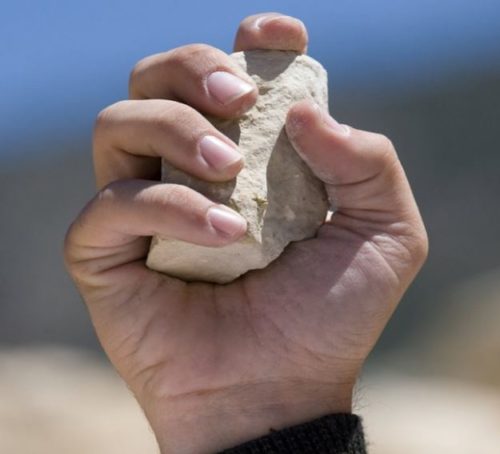“Ah, but let’s not forget that the folks of Toledo unselfishly gave us the scale. No springs, honest  weight, that’s the promise they made, so smile and be thankful next time you get weighed.” (I will not go on since the next line is likely not suitable for a Catholic reflection site).
weight, that’s the promise they made, so smile and be thankful next time you get weighed.” (I will not go on since the next line is likely not suitable for a Catholic reflection site).
From the song, “Saturday Night in Toledo, Ohio” by John Denver
I am a huge John Denver fan. Ever since I first heard “Rocky Mountain High” and also listening to “Take Me Home Country Roads” while riding through the mountains of West Virginia in the United States. His songs seem to bring on a sense of thought and reflection in me as I listen to them. But what the heck does the line from the song about Toledo, Ohio have to do with today’s reading?
“Give and gifts will be given to you; a good measure, packed together, shaken down, and overflowing, will be poured into your lap. For the measure with which you measure will in return be measured out to you.” (Luke 6: 38)
This line made me think of the JD lyric. “No springs…HONEST weight.” No falsely driving up the weight of a product in order to increase the cost!! And when you measure out a product for a customer, do so accurately and honestly and when you go to the store, others will measure honestly for you. Essentially you get back what you give…you reap what you sow.
Now, I don’t think I am naive to think that by doing good to others, you will in turn receive much material wealth. Do we really think this is what Jesus is telling us here? I recall back when I was younger listening to televangelists convince people to send in their donations and they would be rewarded monetarily. That if they followed the word of God, they would be rewarded with riches. There are preachers today who convey the same message. But is this really what is meant when Luke says, “the measure you measure will be returned to you”? I think not.
I know it is not the epitome of moral virtue, but I have recently been binge watching episodes of the American TV show, “Friends”. If you are looking for a show to demonstrate how NOT to behave in your relationships…well, Friends fits the bill. In one episode, there was a debate among the characters about why people performed good deeds for people. Are good deeds done to help others or are they performed because of the good feelings they create in the person performing the deed itself?
I contend that it doesn’t matter. The act of doing good for others creates an overall environment of virtue. A sense of good will permeates and raises up positive attitudes among those involved in the act. This is the real benefit of following God’s word. It is the inner sense of truth and love that is created when the will of God is followed.
I will also propose that this is the same thing that happens with mercy and forgiveness. I know some who read these reflections have a hard time seeing how offering mercy to those who murder children can occur. How can you expect parents of these children to forgive? How does it help the children of these types of events?
Many of you may remember the genocide that happened in Rwanda in 1994. Over a million Tutsi people and some moderate Hutus were murdered by members of the Hutu tribe. Political division and accusation between the tribes went back many years before the genocide and my goal here is not to assign blame. This past Thursday evening I attended what was called a “Healing Mass” at my local parish. It was led by a priest from Rwanda named Father Ubald Rugirangoga. Father Ubald lost some 80 members of his Tutsi family and tens of thousands of his parishioners in the genocide at the hands of the Hutu. His mother was killed in the slaughter. It would have been easy, and justified to many, for him to hold out a sense of hate for the Hutus and want to exact revenge for what he lost.
Instead, Father Ubald set out on a mission of preaching forgiveness in Rwanda and now all over the world. The man responsible for the death of his Mother is in prison in Rwanda. While there, the man’s wife died leaving their two small children alone. Father Ubald not only forgave this man for taking his Mother’s life, but took care of the orphaned children, helping to send one through medical school.
Hate breeds hate. Violence breeds violence. Hating the person responsible for killing children in Florida accomplishes nothing but breeding hate within the soul and fostering an environment of ill will and hate in your life and in those around you.
In my veterinary animal behavior practice, I often deal with aggressive dogs. Punishment to the animal is a common way that people respond to this aggression. Partly because they are angry, partly because they want to demonstrate sorrow to the victim and partly due to ignorance. The result of punishment is usually an escalation of the aggression in the animal both at the time of the event and also later on when similar circumstances are present and the dog associates the situation with the previous punishment. Violence breeds violence.
We must certainly work to heal and find ways to stop the madness we are seeing so often now in our society but we also must follow the model of He who models the will of the Father.
“Be merciful as your heavenly Father is merciful”.
Readings:
DN 9: 4B-10
